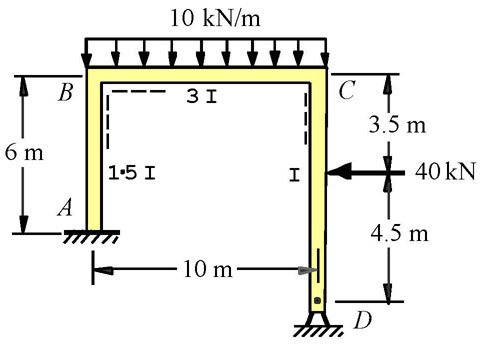Construction Module Afternoon Depth Exam Specifications
By Ahmet Zeytinci, P.E., F-NSPE

As promised in our February 2015 article, we are going to continue talking about the afternoon session of the PE civil exams. The afternoon session tests an engineer’s ability to practice competency in one of the five sub-disciplines of civil engineering (construction, geotechnical, structural, transportation, and water resources and environmental). NCEES designed the PE exam for engineers with FE (EIT) certificates who have at least four years post-college work experience in their chosen engineering discipline. The exams are offered twice a year, in April and October. Remember, new exam specifications begin with the April 2015 PE exams.
The PE civil exam lasts 8 hours and is split into a morning and an afternoon session (4 hours each). The morning breath session of the exam was detailed in the February issue of our column. The afternoon depth section is composed of 40 multiple choice questions and focuses on a single area of practice in civil engineering (e.g., only construction or only geotechnical). Depth exam results are combined with breadth results for final score. As in the morning session, the afternoon depth section uses SI units and the US Customary System (USCS). When you take the PE civil exam, you select an afternoon module during registration and your answer sheet is scored based on the module you selected when registering.
According to the latest statistics, the scores vary among the five civil engineering disciplines. Based on October 2014 test results, for first time test takers, structural scored the highest with 73%; followed by water resources and environmental 72%; geotechnical 67%; transportation 64%; and construction 56%.
Answering our readers’ questions, we will start with the new construction depth exam specifications and continue covering each sub-discipline area of civil engineering separately in future articles.
PE Civil Construction – Afternoon Depth Exam Specifications
The afternoon session of the PE civil construction exam has questions that will require a variety of approaches and methodologies, including design, analysis, and application. Some problems in the afternoon session may require knowledge of engineering economics. A typical breakdown with approximate number of questions:
- Earthwork Construction and Layout: 6 questions,
- Estimating Quantities and Costs: 6 questions,
- Construction Operations and Methods: 6 questions,
- Scheduling: 5 questions,
- Material Quality Control and Production: 6 questions,
- Temporary Structures: 7 questions,
- Health and Safety: 3 questions.
Also be aware that the new exams use the following Construction Design Standards (beginning with the April 2015 exams):
- ASCE 37 (Design Loads on Structures during Construction, 2002);
- NDS (National Design Specification for Wood Construction, 2012);
- CMWB (Standard Practice for Masonry Walls under Construction, 2012),
- AISC (Steel Construction Manual, 14th Edition, 2011);
- ACI 318-11 (Building Code Requirements for Structural Concrete, 2011);
- ACI 347 (Guide to Formwork for Concrete, 2004);
- ACI SP-4 (Formwork for Concrete, 2005);
- OSHA (Occupational Safety and Health Standards for the Construction Industry, 29 CFR Part 1926, US Federal Version); and
- MUTCD-Pt 6 (Manual on Uniform Traffic Control Devices – Part 6 Temporary Traffic Control, 2009).
One last reminder for exam applicants: When you pack your books and other reference material for the PE civil construction exam, do not forget the “Reference Categories” for the construction depth module. These include Construction Surveying, Construction Estimating, Construction Planning and Scheduling, and Construction Equipment and Methods.
Finally, during the exam do not rush and do not just dive in! Read each question very carefully all the way through to the end. In some cases, information provided at the end of the problem will clearly change your final answer. This month’s problem set can be found HERE.
Good Luck,
– Dr. Z.
This email address is being protected from spambots. You need JavaScript enabled to view it.

